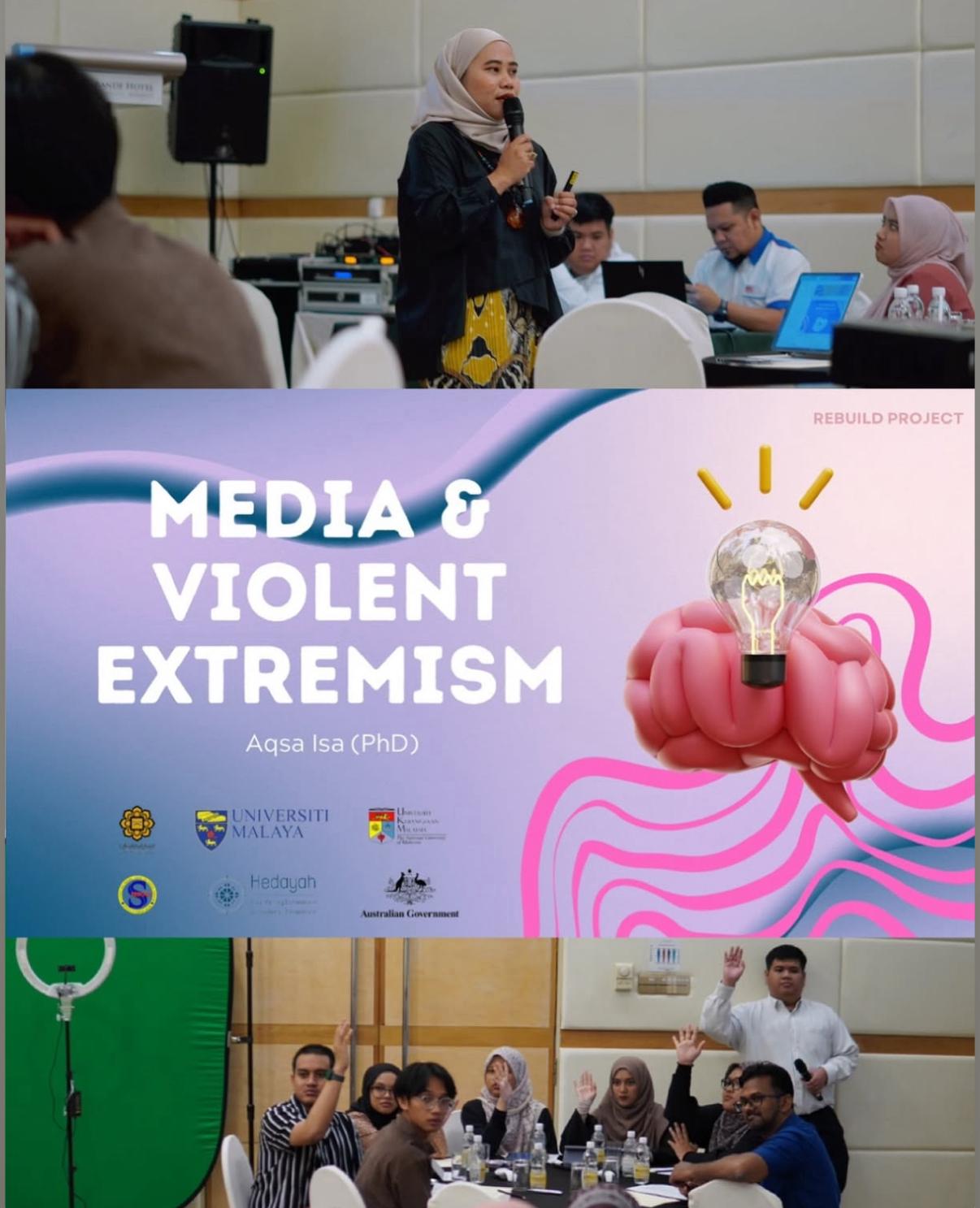Researchers: Dr. Noor Aqsa Nabila Mat Isa and Dr. Nik Nur Ainin Soffiya Binti Nik Mat
"Wishing death upon all your family generations,” “What a disgrace to the nation,” “Terrorist family”—these are just a few of the hateful words hurled at the families of individuals detained for violent extremism in Malaysia. This project, which looks into violent extremism reporting in Malaysia, has revealed that when news of arrests were publicized, they often included the exposure of personally identifiable information, such as full names, home addresses, and even photos of the detainees as well as their families' homes and residential areas. This can not only affect the detainees’ prospects for rehabilitation and reintegration into society, but also cast a dark shadow over their innocent family members. There have been cases where the family members were forced to move homes and sever ties with friends and relatives, and this further exacerbates their isolation and distress. A particularly alarming consequence of such invasive media reporting is that it may escalate the risk of reoffending. Individuals who feel cornered and stigmatized by the public often perceive limited alternatives and a lack of support, which can drive them back to committing similar offences.

This latest research project builds upon Dr Aqsa’s previous research which documented these harsh realities and the extensive negative impacts of such media reporting. In collaboration with Dr. Soffiya, it aims to look deeper into the influence of media reporting on violent extremism in Malaysia on public perceptions. By engaging directly with tertiary education students in media studies and linguistics, who may shape the future landscape of media reporting, the project seeks to effect a change in this regard. The initial phase of the work highlighted the severe repercussions faced by ex-detainees and their family members, including stigma, social isolation, invasive media practices, online abuse, and obstacles to employment, all stemming from questionable reporting practices. Additionally, while previous research has examined how violent extremism-related news is portrayed in the media and its effect on public perception (e.g. Schmuck et al., 2018; Al Ibrahim & Shi, 2020; Sui et al., 2020), there remains a lack of investigation into the aspects of news coverage that are perceived by the public as problematic, as well as strategies for improving such reporting from a community standpoint. This unexplored area presents a crucial opportunity to enrich the existing discourse on the subject.
With a focus on cultivating a new generation of potential journalists who are equipped to handle such sensitive topics with integrity, a questionnaire will be distributed to identify and discuss the problematic areas in the current news reports on violent extremism cases in Malaysia, while providing practical insights into how future reporting can be improved to avoid similar ethical shortcomings. By discussing ethical implications and societal impacts of media reporting, the researchers hope to instill a sense of responsibility and encourage a shift towards more thoughtful and considerate media practices.
Note: This research is funded by Rabdan Academy, Abu Dhabi, UAE.